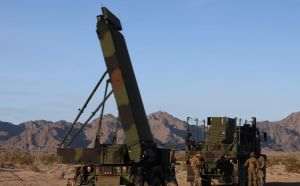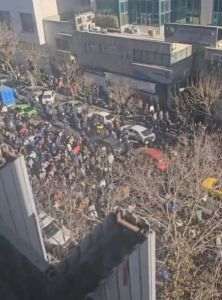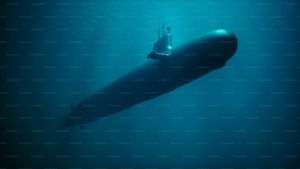• Interview with engineer Mihai Macsim, the general manager of the Romanian-Russian Chamber of Commerce and Industry
Reporter: How are our relations with the Russians evolving?
Mihai Macsim: Slowly but steadily. Politically, they are in line with the policy of the European leaders in the EU and with NATO's defense interests. In this particular area, we can't really afford to have an opinion which goes against the alliances which we are a part of and against the private interests of some powerful and influential associates. Any attempt at independence on our part is most of the times sanctioned by the "small fries" who think that they are on an equal footing with the sharks (see the case of Holland). Still, I think that the idea of "pragmatism" in the implementation of our interests is an intelligent formula.
Reporter: What investments do the Russians have in Romania?
Mihai Macsim: According to their development strategy, in the next 10-20 years they will invest predominantly in the expansion of the primary energy sources (oil, gas, coal, hydro), as well as in their conversion into electricity, first of all through thermoelectric technologies. Romania's interest is directed first of all towards the investments in the processing of hydrocarbons, and I am referring here to refineries and petrochemical plants, and resulting in electrical plants based on gas, oil, hydro and nuclear, areas in which Romania has an attractive offer. Also, the rehabilitation and the modernization of the abandoned and heavily indebted Thermoelectric Plants (CETs), the construction of hydroelectric and nuclear plants for the export of electricity, and particularly for ensuring the reserves, (buffers) for the wind and solar generators (investments which take a long time to reach breakeven) are attractive for the Russian companies. Starting from these interests, they are investing indirectly (through companies from the EU or from Asia in which they are majority shareholders). Thus, they are present in Romania in most refineries, metallurgic plants, in machine building, and generally in areas where Western investors avoid to go due to objective reasons: recouping the investments will be made over a long period of time, which is not profitable for them. For Romania, their investments in these areas are beneficial, ensuring a large number of jobs.
Reporter: What is the amount of the Russian investments in Romania?
Mihai Macsim: Given what we stated above, namely that they invest indirectly, they do not show up as significant foreign investors in Romania.
Reporter: What are the areas in our country which the Russians want to invest in?
Mihai Macsim: On top of what has been said above, there is also tourism, - spa tourism in particular, as well as leisure tourism. One other area they might be interested in is gambling. When it comes to tourist circulation, they are interested in the construction of highways, (an example would be the highway around the Black Sea, with a length of over 7000 km, which will connect all the neighboring resorts, completing the Golden Ring which began at the Golden Sands of Bulgaria.
Reporter: What can you tell us about the Russians' interest in the spa sector?
Mihai Macsim: The base reason why they are interested in our spa sector is the geographic proximity and tourist safety. The interest in balneology, in general, is motivated by the post-trauma recovery, in order to compensate for the effects of other forms of treatment (chemotherapy), but especially due to the weak domestic offer available in Russia in that area.
Reporter: What do our exports/imports to/from Russia rely on?
Mihai Macsim: Mostly based on what others are doing in Romania - cars and components for them ("Renault", "Ford", German brands), products made by companies with Russian capital in the machinery industry (pipes, fixtures, complex equipment for the oil and gas industry, as well as products of the non-ferrous metallurgy), furniture products (to a lesser extent), apparel, foodstuffs etc. When it comes to imports, we import energy carriers, products of the chemical industry, metallurgic products for the building of cars, urban transportation vehicles for the towns in various Romanian counties, spare parts for the equipments and installations imported prior to 1990, wood etc.
Reporter: What are your estimates on the evolution of the relationships between Romania and Russia?
Mihai Macsim: If the West and the East can get along, both politically and economically, I think that Romania will also be able to focus on Russia and the Russian market. It mostly depends on the manner of approach. If we approach that relationship from a political angle, strongly influenced by the past and by its subjective interpretation, then the relations will deteriorate dramatically. If we are going to approach them in a pragmatic manner, they will be positive. I am thinking in particular about the possibility of generating a large number of jobs for Romanians, as well as meeting the huge demand for specialized/qualified workforce in Russia, in particular in the area of engineering and industrial construction.
Reporter: Which countries and economic sectors is Russia focusing its growth strategies on?
Mihai Macsim: At the moment, based on the information disclosed by the media and the electoral programs in the presidential elections in Russia, their foreign policy is focused first of all on those who want to cooperate with them. As a result, the countries which belonged to the USSR, where they are building specific political, military and economic relationships and structures take precedence. A positive reboot of the relationships with the EU and the USA - NATO is expected to take place - based first of all on a pragmatic approach determined by the economic interests.
If the confrontational policy is abandoned, then they will survive, and the world will have a chance of doing better. The Middle East and the Far East, especially China, Japan, India, are priority economic and political objectives. In the development strategy, the catching up of certain technological, economic and social deficits take precedence. At the same time, the defense policy intended to preserve its part as a balance keeper in the international politics will continue.
Reporter: Thank you!
VTB Capital, the second largest state-owned Russian bank, intends to invest "a few hundred million Euros" in the Balkan region in the coming years, and it is interested in the privatization of "CFR Marfă" as well, its CEO Atanas Bostandjiev recently said.
Mihai Macsim also said that there are Russian investors interested in Romania's railroad infrastructure: "The Russians want to buy < CFR Marfă > Romania or at least rent their cars, of which they have a shortage. We used to build train cars in Balş and Arad for them".
Atanas Bostandjiev said: "I will be happy if I will invest a few hundred million Euros in various projects in Bulgaria, Romania, Serbia and Greece, directly as a bank or by supporting their customers. There are good opportunities in energy, transportation, telecommunications and agriculture. We will review the privatizations planned in Bulgaria, Serbia and Romania. We are interested in the privatization of the Romanian railway company of Romania".
•
"Gazprom", through its branches, and representative offices outside Romania, is one of the several hundred Russian companies present in Romania, Mihai Macsim said in another interview: "< Gazprom >, only has < Gazprom Export > directly - the connection station between Isaccea and the pipeline coming from Ukraine and going towards the Balkans. On the other hand, the corporation would like to do a lot more things with us. It is now operating in Romania through a representative office of one of its Serbian branches of its subsidiary company < Gazprom Nefti >, which deals almost exclusively in oil. They have bought a concession from the Canadians concerning the drilling and extraction of oil and the rehabilitation of oil wells. That's what the Westerners do - they buy cheaply from us and sell dearly to the Russians. They are in the process of obtaining the permits from the Romanian state. They have been waiting for six months".
Also, "Gazprom" through its daughter companies has a major interest in building gas-based electricity generators, and to fully use the access point of Isaccea, on the side of Ukraine. According to Mr. Macsim, the Russians of "Gazprom" may invest in the rehabilitation of the hydrocarbon sources, through their subsidiaries: "They would like it more to fix the system of transport which goes through Ukraine than use "South Stream", because crossing the Black Sea isn't easy to do".
"Gazprom Nefti", through its sister companies in Serbia, also wants to build hydrocarbon deposits in Romania.
"They need a buffer zone and we could have been it; through the < South Stream > pipeline, they could have delivered gas in various directions. Romania should have been an energy hub, one for the distribution of natural gas. This project has been under discussion since 1995-1996", the official of the CCIRR said.
"Gazprom Nefti", through its branches, wants to rehabilitate/acquire several gas stations all over Romania.



















































